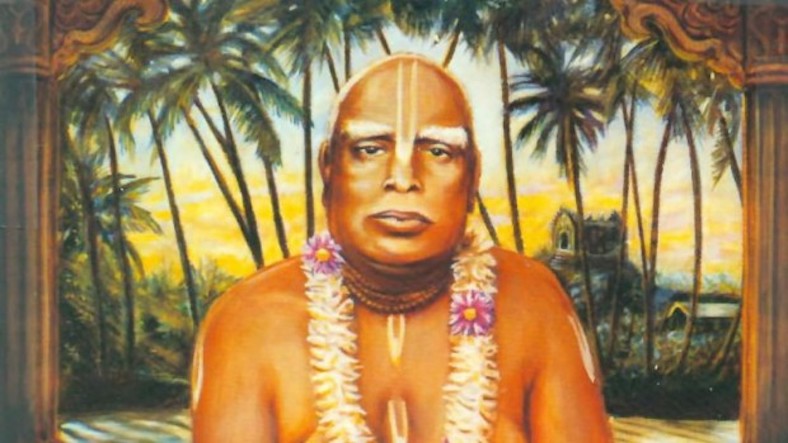Bhaktivinoda Thakur, born as Kedarnath Datta (1838-1914), was a prominent Hindu philosopher, scholar, writer and reformer in the Gaudiya Vaishnavism tradition, which emphasizes devotion (bhakti) to Lord Krishna. He played a crucial role in reviving and spreading the teachings of Chaitanya Mahaprabhu, the 16th-century saint and founder of the Gaudiya Vaishnavism movement. Bhaktivinoda Thakur's contributions include his writings, spiritual insights and efforts to establish a more inclusive and progressive form of Vaishnavism.
Here are some key aspects related to Bhaktivinoda Thakur and his contributions:
- Theological and Philosophical Contributions: Bhaktivinoda Thakur was a prolific writer who authored numerous books, essays and commentaries on Vaishnavism and spirituality. His works include theological treatises, devotional poetry and insightful commentaries on ancient scriptures. Thakur's writings focused on establishing a philosophical basis for Gaudiya Vaishnavism, emphasizing the teachings of Chaitanya Mahaprabhu and the practice of pure devotional service to Lord Krishna.
- Propagation of the Holy Name: Bhaktivinoda Thakur recognized the profound spiritual significance of chanting the holy names of God, particularly the Hare Krishna mantra. He promoted the chanting of the Hare Krishna mantra as the primary means for spiritual purification and achieving a direct connection with the divine. Thakur's efforts to popularize the chanting of the holy names laid the foundation for the global Hare Krishna movement that emerged in the 20th century.
- Social and Religious Reforms: Bhaktivinoda Thakur was a visionary reformer who sought to address social and religious issues within the Vaishnava community. He challenged certain orthodox practices and worked towards reconciling traditional beliefs with modern thought. Thakur advocated for a more inclusive and universal understanding of Vaishnavism, emphasizing the core principles of love, compassion and spiritual realization.
- Literary Contributions: Thakur's literary contributions were diverse and influential. He composed devotional songs and hymns that are still sung and cherished by devotees today. Some of his well-known works include "Jaiva Dharma," a philosophical novel exploring the nature of the soul and "Sri Caitanya Siksamrita," a collection of teachings and insights on spiritual practice.
- Spiritual Leadership and Legacy: Bhaktivinoda Thakur's spiritual leadership was instrumental in the resurgence of Gaudiya Vaishnavism during a time of decline. His teachings and writings inspired a new generation of Vaishnava scholars and practitioners and his efforts laid the groundwork for the establishment of prominent Vaishnava institutions. His son, Bhaktisiddhanta Sarasvati Thakur, carried forward his legacy and played a significant role in further spreading the teachings of Chaitanya Mahaprabhu.
Bhaktivinoda Thakur's contributions as a philosopher, writer and reformer continue to have a profound impact on the Gaudiya Vaishnavism tradition. His emphasis on the power of devotional practice, inclusivity and spiritual realization has influenced generations of devotees and spiritual seekers. Bhaktivinoda Thakur's teachings and vision have played a pivotal role in the popularization and global outreach of the Hare Krishna movement, making him a revered figure among Vaishnava communities worldwide.
Thanks for reading the about this great personality on our peoples blog, for more such great people read our peoples blog articles.



![Samsung Galaxy Tab S9 FE [Smartchoice], RAM 6 GB, ROM 128 GB Expandable, S Pen in-Box, Wi-Fi, IP68 Tablet, Gray Samsung Galaxy Tab S9 FE [Smartchoice], RAM 6 GB, ROM 128 GB Expandable, S Pen in-Box, Wi-Fi, IP68 Tablet, Gray](https://m.media-amazon.com/images/I/71BM3TBipEL._SX679_.jpg)






